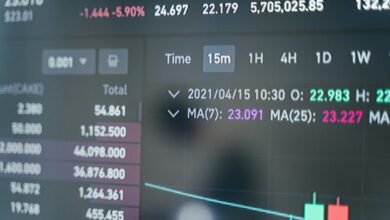What This Call Means: 9172423844

The call from 917-242-3844 raises several questions. Many individuals have reported similar encounters with unknown numbers, often linked to telemarketing or potential scams. Caller IDs can provide a number but lack context, leading to uncertainty. What motivates these calls? Understanding the implications of engaging with such unknown contacts is crucial. The answer may reveal important insights about safeguarding personal information and navigating these unsolicited communications. What strategies can one employ to stay secure?
Understanding the Caller ID
How does Caller ID function in modern telecommunications?
Caller identification technology operates by transmitting the caller’s number and name to the recipient’s device. This allows individuals to screen calls effectively.
Additionally, call tracing services complement this technology, enabling users to identify and report unwanted or suspicious calls.
As a result, individuals gain more control over their communication choices, promoting a sense of freedom.
Common Reasons for Receiving Calls From 917-242-3844
Receiving calls from 917-242-3844 can prompt curiosity about the reasons behind these communications.
Common explanations include telemarketing tactics aimed at promoting products or services, as well as potential scams.
Caller identification may reveal the number’s origin, but it often lacks context.
Understanding these motives can empower individuals to make informed decisions about engaging with unidentified callers.
How to Handle Unknown Calls
What steps should individuals take when faced with unknown calls? Employing effective unknown caller strategies is essential.
First, utilize call screening techniques, such as identifying the number through reverse lookup services.
If the call persists, consider blocking the number.
Remaining cautious and not engaging with unfamiliar voices can help maintain personal privacy while managing unwanted communication effectively.
Protecting Yourself From Potential Scams
Is it possible to navigate the ever-evolving landscape of scams effectively?
Individuals must prioritize scam awareness to safeguard against identity theft. Employing strategies such as verifying unknown calls, utilizing call-blocking apps, and educating oneself about common scams can enhance personal security.
Remaining vigilant and informed enables individuals to maintain their freedom while minimizing vulnerabilities in an increasingly deceptive environment.
Conclusion
In conclusion, receiving calls from numbers like 917-242-3844 raises important questions about privacy and security. With an estimated 50% of all calls made in the U.S. classified as spam, it’s crucial for individuals to adopt proactive measures in handling unknown callers. Utilizing call screening and staying informed about prevalent scams can significantly reduce risk. By remaining vigilant, one can navigate the landscape of unsolicited communications more effectively, safeguarding personal information and peace of mind.



